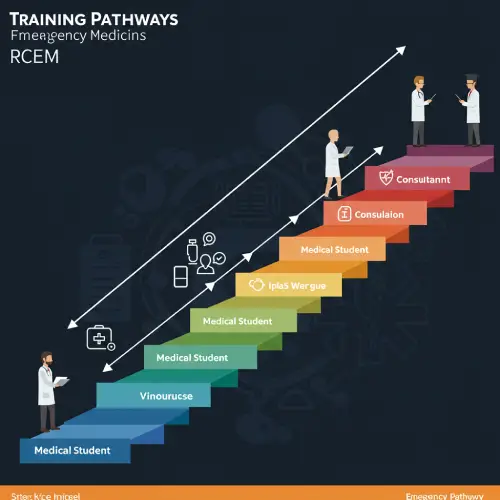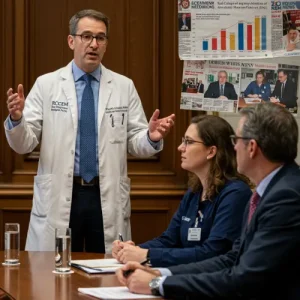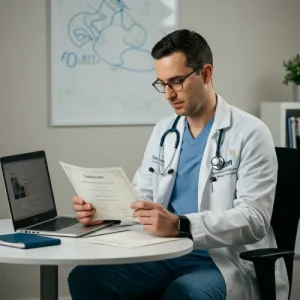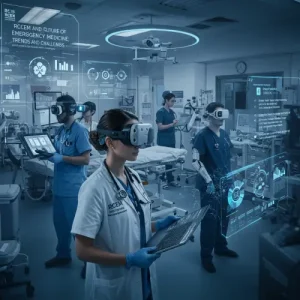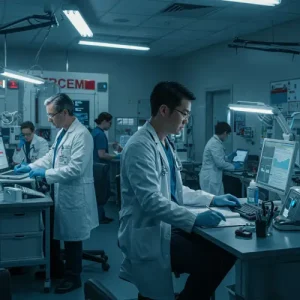Becoming a consultant in emergency medicine is a rewarding and challenging career journey, marked by dedication, skill, and a passion for providing critical care. For those pursuing a career in this fast-paced and essential medical specialty, the Royal College of Emergency Medicine (RCEM) provides structured training pathways designed to support individuals from the early stages of their medical education all the way to becoming a fully qualified consultant.
In this blog, we’ll explore the RCEM training pathways and how they guide medical students and doctors through each phase of their development in emergency medicine.
The Road to Becoming a Consultant in Emergency Medicine
Becoming a consultant in emergency medicine requires a combination of rigorous training, clinical experience, and professional development. RCEM plays a pivotal role in this process, offering clear and well-structured training stages to ensure that each doctor reaches their full potential in this demanding field. Let’s break down the training journey, from medical student to consultant.
1. Foundation Year (F1 and F2)
The journey toward a career in emergency medicine begins during the Foundation Years. After completing medical school, newly qualified doctors enter the Foundation Year 1 (F1) and Foundation Year 2 (F2) stages. While not specifically focused on emergency medicine, these years provide a broad range of clinical exposure that forms the foundation of a medical career.
During these years, doctors will typically rotate through various specialties, including some experience in emergency departments. The skills learned in these rotations—such as basic patient assessment, acute care management, and teamwork—are essential for later specialization in emergency medicine.
2. Core Training in Emergency Medicine (CT1 and CT2)
Once a doctor completes the foundation years, they can apply for Core Training (CT), which is the first formal stage of specialty training in emergency medicine. RCEM offers structured programs that are delivered in partnership with various NHS trusts.
The CT1 and CT2 years are designed to provide a comprehensive understanding of emergency medicine. Trainees will build on their foundational knowledge, focusing on core emergency care skills, such as triage, trauma management, and dealing with life-threatening conditions like cardiac arrest, strokes, and major trauma.
During this time, trainees are exposed to a wide variety of clinical scenarios in emergency departments, learning how to manage a diverse patient population, ranging from children to the elderly. Trainees will also work closely with consultants and senior clinicians to gain hands-on experience, receive feedback, and develop their clinical competencies.
As part of this core training, trainees will need to pass the FRCEM (Fellowship of the Royal College of Emergency Medicine) exams. These exams test knowledge and clinical judgment, marking a crucial step in moving forward in the specialty. Successful completion of these exams is a requirement for progressing to higher levels of training in emergency medicine.
3. Higher Specialty Training (ST3 to ST6)
Once core training is completed, doctors can move on to Higher Specialty Training (ST3 to ST6). This stage is designed to refine skills and deepen the knowledge required to become a consultant in emergency medicine. The focus shifts to more complex clinical scenarios, leadership, and the ability to manage a department effectively.
The ST3 to ST6 years involve rotations in advanced emergency care settings, where trainees develop expertise in areas such as:
- Advanced trauma life support
- Pediatric emergency care
- Major incident management
- Critical care management (including resuscitation)
- Pre-hospital emergency medicine
Trainees will also focus on developing their leadership skills and learning about the management of emergency departments, including staff supervision, resource allocation, and patient flow.
A key element of higher specialty training is completing specialty modules in areas such as medical education, research, and quality improvement. These modules are designed to provide trainees with a well-rounded education in emergency medicine and prepare them for the multi-faceted role of a consultant.
4. Subspecialty Training (Optional)
While not mandatory, some doctors may choose to pursue subspecialty training during the ST3 to ST6 years, where they can focus on specific areas of emergency medicine that align with their interests. These may include:
- Pediatric emergency medicine
- Pre-hospital care and retrieval medicine
- Trauma and orthopedics
- Intensive care and resuscitation
- Emergency medical ultrasound
Subspecialty training allows doctors to develop deeper expertise in these specialized areas, adding more breadth to their skills and knowledge in emergency care.
5. Final Exams and Certification
In order to become a consultant in emergency medicine, doctors must pass the Final FRCEM exam, which assesses their comprehensive knowledge, clinical judgment, and leadership skills. This exam is a critical step in confirming that a trainee is ready to practice as a consultant in emergency medicine.
In addition to the Final FRCEM exam, trainees must complete all the necessary clinical and educational requirements of their training program and demonstrate proficiency in areas such as leadership, communication, and professionalism. Once these requirements are met, trainees are awarded Certificate of Completion of Training (CCT) in Emergency Medicine.
6. Becoming a Consultant
After successfully completing their higher specialty training, passing the FRCEM exams, and receiving their CCT, doctors are eligible to apply for consultant positions in emergency medicine. Consultants are responsible for overseeing the clinical care provided in the emergency department, leading teams, and ensuring that patients receive high-quality, timely care.
Becoming a consultant is a highly rewarding achievement, marking the culmination of years of hard work and dedication. Consultants in emergency medicine play a key role in shaping the future of the specialty, leading innovations in patient care, and guiding the next generation of emergency medicine professionals.
Conclusion
The path from medical student to consultant in emergency medicine is long and requires years of rigorous training, exams, and clinical experience. The RCEM training pathways provide clear and structured steps to ensure that each doctor develops the skills, knowledge, and leadership abilities required to excel in this high-stakes specialty.
Whether you’re just beginning your medical education or are already working in emergency departments, the RCEM pathway offers a clear route to becoming an expert in emergency care. By joining RCEM, you’ll be supported throughout your career development, ensuring you have the tools and resources needed to succeed in one of the most dynamic and rewarding fields in medicine.
